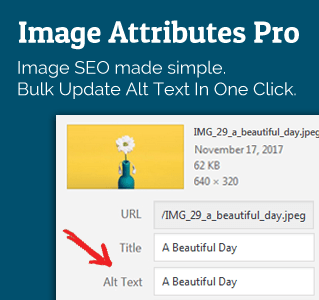Cybercrime rates are going up, and the main tool in the hacker’s arsenal is your personal information. It is what they seek and what they will use to perform identity theft or get even more of your valuable data. Once they have enough they’ll wreak havoc on your life or sell it to someone who will.

There are certain pieces of information that you absolutely need to keep under wraps. They are either extremely dangerous for criminals to have or a master key to all of your accounts and resources. The tools and habits needed to protect them are there, you merely need to seek them out.
Here is everything you need to know:
The Information
Social Security Number
This is probably the one piece of information you keep close to your heart already if you are at all concerned about privacy. Listing out the private documents and processes this number is used with would be an exercise in tedium and redundancy. What I will say is that protecting it is fortunately the easiest, but it is also a high-value target. Identity theft is so much easier for cybercriminals with someone else’s SSN.
Email Address (Name and Verification Info)
Your email address is the common factor regarding all of your online accounts and personal information. It is likely tied to your financial accounts, social media accounts, forum accounts and that one coupon website you mistakenly subscribed to four years ago. If a hacker were to somehow be able to login to your email and keep access for even an hour, they could take everything you have online and leave you scrambling for days. Depending on the other accounts you have, identity theft could be as easy as clicking a few links.
Street Address
No one online needs to know where you live unless you know the person already or are having something shipped to you. People can often use an address as a piece of identifying information or a means to track you. It is unlikely, but you don’t want someone dangerous showing up at your house. Combined with other information, this is potentially the most frightening thing for a criminal to have.
Bank Account Data
This one is obvious but important to note, as not nearly enough people protect their bank account information as much as they should. While there are many options to reclaim your bank account should it be stolen (specific options vary by bank), you likely won’t be able to access your funds for several days and you might be charged a fee. Giving out bank account information to any company or individual online is a risky maneuver, and should be avoided in favor of an alternative. Hackers will be watching for an opportunity.
Current Whereabouts
You don’t need to broadcast your location to everyone online. The fact that you can confirm you’re currently having frozen yogurt is far more interesting to people who want to break into your house than people you met once at a friend’s party. Not only that, but hackers can pay attention to your patterns and know exactly when to strike so that you won’t notice for another six hours.
Protection Methods
Protecting your private information isn’t a massive undertaking. It is mostly basic internet security with a few special notes attached to it. Here is what you need:
Basic Tools
Just like the best tools don’t have any use without the proper hands to wield them, the best mind can do nothing without the proper tools. At the very least, you need to have a security suite to protect you online as you perform normal online activities. You should also potentially be using a quality password manager such as LastPass and perhaps a few browsers, toolbars or add-ons depending on your specific needs. Just make sure you aren’t using fake tools or free tools that are only malware in disguise.
A Virtual Private Network
When it comes to tools to protect your personal information and keep you anonymous online, the Virtual Private Network (VPN) is king. It is a service that will connect you to an offsite secure server via an encrypted connection, keeping you anonymous online and protecting your data from interception on public networks (one of the greatest cybersecurity threats of our times). In short, it will allow you to browse the internet anywhere you’d like without fear of someone else looking in. If you are interested in what an excellent VPN should look like, you should check out this great review of ExpressVPN by Secure Thoughts.
Standard Procedures
You need to have good online security habits to protect your valuable information. Here are a few things you should be doing at all times:
- Avoiding website that aren’t secure. Any website you give your financial information to should have an SSL certificate and also not ask for any more information than necessary, even if stated for an innocent reason.
- Personally checking your browser and computer for any suspicious cookies or malware. Scanners are great, but you know best what should be on your computer.
- Remove all traces of sensitive information from your computer. If someone else accesses it remotely or someone steals your device, you will be a lot safer for it.
- Use the strongest verification methods possible. Long and complex passwords and obscure security questions go a long way. Biometrics are great on smartphones when combined with other methods.
A Commitment to Privacy
Privacy is as much a state of mind as it is a concept. Constantly think about what steps you can take to keep your private information private. Some people keep separate email addresses for financial and personal matters. Others will even use a P.O. box to hide their address from the internet. You rarely need to give your information away online. The internet merely makes it convenient for you to do so. Avoid the temptation and start living a safer, more private lifestyle today.

Your information is valuable to you and valuable to hackers who would love to exploit or sell it. That being noted, there are key pieces of information you simply cannot let fall into the wrong hands. You can protect yourself. It isn’t difficult, all you need are the right tools and habits to put up a wall before you go online.
Do you have other thoughts regarding keeping your information secure? Are there any other pieces of information that pertain to you that you are worried about? Are there any other protection methods that you think might be useful to some people? Please let us know in the comments section below and join the conversation.






Leave a Reply